|
“What is man that you are mindful of him or the son of man that you are for him?” Ps. 8:4 In a time such as this, in the middle of a worldwide pandemic, many people are tempted to ask questions: Why is this happening Lord? What will become of me? Have you forsaken us? Do you still care for us? As Catholics, we need only to search the holy scriptures to find our answers. Isaiah 41:10-13 says “For I am the Lord, your God, who takes hold of your hand and says to you, do not fear, for I am with you; be not dismayed, for I am your God, I will strengthen you, I will help you, I will uphold you with my victorious hand.” In the midst of overwhelming craziness, staring down the face of so many unknowns, this verse gives me such comfort! I read it and remember the Israelites wandering in the desert for a very long time, not knowing how or when they were going to be delivered to the Promised Land, and it puts this situation in better perspective. From history, these people were fed and their needs provided for because God promised He would help them. I do not need to know when this specific disease will be eliminated. I do not need to know how long my ‘normal life’ will be turned upside down. I do not need to worry if my basic needs will be provided for. I have a promise from the Almighty. His promise is unbreakable and everlasting. So where does my anxiety come from? It comes from not leaning on His strength, not trusting in His provision, not resting in His perfect love. I need to spend my time praising and thanking Him for the fact that He cares about every minute detail of my life and has told me He will not abandon me – unequivocally! Upon my rising, I must choose to be grateful for another day to live in service of my husband, my children, and my neighbors. When I begin in gratitude, I can step forward into the day with all it’s uncertainties and live in peace, not in fear. “Cast all your anxiety on him because he cares for you.” 1 Peter 5:7 When I recall that God cares for each of us with a love that is perfect, this knowledge begins to settle in my heart and permeates my soul. It is an act of surrender – to cast my human weaknesses on Him and go about the duties of my day with a disposition of peace and hope. St. Paul reminds us in 2 Timothy 1:7: “For the spirit God gives us does not make us timid, but gives us peace, love and self-discipline.” This applies to all of us – not just the people in Ephesus a couple thousand years ago! God’s love is timeless, limitless, and eternal. It is beyond our human comprehension. It requires us to choose to believe and experience Christ’s love within us. You see, we have more important things to be doing than spending our time questioning, worrying, wondering, lamenting, and fearing. He reassures us over and over that He is near, is helping us, and is carrying us. We have evidence of His care for us in the many selfless people on the front lines serving our medical needs, manning our stores, and delivering our supplies. They are God’s love made manifest in this crisis. It is our choice to decide that we will believe this and trust moment by moment that His promise is true and secure. We don’t have to fully understand it – because we won’t – but in order to live in serenity with a calm mind, we must choose to walk in complete belief. We can accomplish this amidst great trial, because He is our helper and our strength, our strong tower. As we live in the disposition of faith that God will care for us in all circumstances, we can reach out to those around us and share this magnificent gift. We can be His hands, His voice, or His smile to quell the fear in another. This is our call as Christians – to wholeheartedly believe and to unconditionally share it with everyone. It seems so simple. And it is – when we devote ourselves to prayer and fasting and Scripture reading. We are afforded so many wonderful ways to do these. We have our Bibles in book form, on our tablets and phones. We can stream Masses being offered in churches all over the world right from our couches. There are numerous holy men and women who speak and write about God’s promises that we can listen to or read. In our progressive digital age, it is amazingly easy to immerse ourselves in material that will strengthen our belief and encourage us in the truth of God’s care for us. How fortunate we are! We can go about our days, in the middle of great strife, with confidence that God is mindful of us, each and every one of us. “Whoever trusts in the Lord is kept safe.” Proverbs 29:25 Still, because I am just a mere mortal with lots of frailties that can derail me from the Godly path, I keep reminders on the walls of my home to keep me focused on this truth. A wooden sign that reads ‘Expect a Miracle’ hangs in my family room. The Good Shepherd cradling a sheep hangs in my dining room. Pictures of the Sacred Heart of Jesus and the Immaculate Heart of Mary hang over my bed. The face of Jesus hangs in my living room. Crucifixes hang in every room. These are my personal visual reminders of the love of God that help me keep my eyes on Him, my heart comforted, and my mind at peace. I recommend everyone find tangible ways to stay connected to this truth so that we can be disposed to share it with others. It is when I live from this mindset that I can sing with total confidence that it is well, it is well with my soul! “Consider it pure joy, whenever you face trials of many kinds, because you know that the testing of your faith develops perseverance. Perseverance must finish its work so that you may be mature and complete, not lacking anything. If any of you lacks wisdom, he should ask God, who gives generously to all without finding fault, and it will be given to him. But when he asks, he must BELIEVE and not doubt.” James 1:1-8 Who are we that God cares for us? We are His. He thought us into being because He is love and He wants to share His love with us for time and eternity. That is a comfort and a confidence I can rest in! This is the Savior who is mindful of me. Thank you, Lord! Continue to shower me with the grace to walk steadfast in my belief. No matter the trials or circumstances, God is with us and all will be well.
0 Comments
My wife and I welcomed our first daughter into the world on February 24th, and we brought her home a few days later on Ash Wednesday. As is the typical newborn parent experience, we’ve endured frustrating, sleepless nights and reveled in joy-filled, playful mornings. Because of stay-at-home, work-from-home orders in Texas, my parental leave has been longer than I anticipated, but I believe this is a blessing. Each moment I’ve had with my daughter has been precious, and as I sit on this (squeaky!) rocking chair holding her in my arms, balancing my laptop on my knee, the recent advice of expert parents runs through my mind and evokes in my heart a fresh understanding of God’s divine fatherhood and my pursuit of sainthood. In the weeks leading up to our daughter’s birth, one mother of 6 said something to me to the effect of: “The nights are long and the days are short, but the years are the fastest of all.” In these first few weeks of parenthood, I’ve found that my wife is more easily roused during the night. When it’s my turn (opportunity, really) to get up mid-REM cycle, the nights really do feel long. Honestly, they drag. But it’s struck me more than once that getting up in the middle of the night is a very practical way that I can pursue holiness in my vocation. To sacrifice sleep to offer comfort to my child and rest for my wife is not in the same league as answering a burning question for the Summa or calling out a witty line while being burned at the stake, but it is a constant formation in the virtues of humility and charity. I’m led to consider St. Therese’s “little way,” which makes more and more sense each day. Those long nights always do turn into days and, I’m sure, the years will speed by soon. Many people, including our pediatrician, have said, “Always hold your baby in the first few weeks, even when she’s sleeping. You’re not spoiling her, and you won’t get to do that forever.” As a general rule, I’ve always believed babies are cute and, therefore, worthy of spoiling. But no one warned me that when it comes to one’s own child, evolutionary biology and divine motivation combine to make one certain that one’s own baby is the most perfect, most adorable being on all the earth and, therefore, is automatically deserving of every good thing. When I’m holding my daughter in my arms, and I gaze upon her (perfect) little face with its self-inflicted scratches and baby acne, I’m blown away at how much love I have for her. Then, I’m briefly terrified at the thought that something bad could happen to her. And isn’t that how it is for our relationship with God our Father? He gazes upon us, loving us with all our imperfections, slightly terrified and sorrowful at the thought that sin and death and temporal pursuits could lead us to ruin. As I adjust this baby in my arms right now, I’m wondering whether God pulls us closer to His bosom in those moments of near separation, gazing upon us all the while, reminding us how beloved we are with, as Nouwen says in Life of the Beloved, “all the tenderness and force that love can hold.” There are many more pieces of advice that have yielded great spiritual reflections for me these last few weeks. Now, I know that I’m not offering any groundbreaking reflections, but maybe the point of this post is not to offer a new thought, but instead to acknowledge that God has spoken these familiar realities of His love and affection for me in a deeper way through the experience of my vocation. I’m encouraged to remind you in these times of distress: God is a loving Father whose sacrificial love turns against all else, even His own justice (Deus Caritas Est, 10) to gaze upon you with all the force that love can hold. Perhaps this is a notion all mothers and fathers before me—spiritual, adoptive, and biological—have come to understand already, but it’s consoling to know that in a time of uncertainty, God still speaks to and affirms His people through personal encounters. Even through a sleeping baby and a squeaky rocking chair. For more resources on Marriage and Family, please click here. 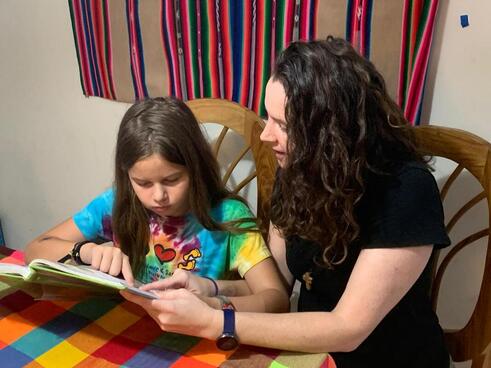 Like most of you, my family and I have been in quarantine. When El Salvador’s President Nayib Bukele first announced the prospect of a quarantine—before there were any confirmed cases here—our family decided that it would be best to practice physical distancing right away. The public hospital system here in El Salvador is precarious under normal circumstances, and once the virus is at its peak, it won’t matter how much money you have. If you require a hospital bed, you will go where there is one available. The national convention center in San Salvador is being converted into a 3,000-bed hospital, with 1,000 of those beds designated for intensive-care patients. Our best bet for surviving this pandemic is to stay home and find ways to continue our relationships with the people at our ministries without being physically present—a challenge, but also an opportunity. My ministry, the women’s cooperative ACOMUJERZA, has come to a screeching halt. We were in the middle of a huge order for the Education Ministry of El Salvador. We are sewing over 3,000 school uniforms as part of a government-funded program. This order is the biggest we have ever been contracted to make, and frankly before this pandemic our members were scrambling to figure out how we were going to sew more than 3,000 pieces in 60 days and how we were going to pay everyone to make all of those uniforms. ACOMUJERZA applied for a loan from a non-governmental organization that has helped us in the past. We received the preliminary approval for the loan, but with all of the economic uncertainty, the NGO froze all lending for the foreseeable future. ACOMUJERZA members packed up all of the finished uniforms and prepared the building for the beginning of a nationwide mandatory quarantine on Saturday, March 21. There is so much uncertainty, and yet when I talk to each of our members, they remain positive. The government has promised a government grant of $300 a month to unsalaried workers—those most in need, which applies to some of our members—but that money has not been distributed yet. With 12 days into our quarantine, I worry about how my friends at the cooperative are surviving and if they have enough food to eat. I spoke with my friend Juanita from the women’s cooperative the other day. She told me that, when she first went home after the president declared quarantine, all she wanted to do was cry. She felt depressed and sad to not be able to go to work and she felt a loss of her freedom. But after a few days, she pulled herself out of her sadness, and she told me about all of the things that she and her daughter decided to do during the mandatory quarantine. They already painted a few rooms in their house, got rid of old clothes, sewed masks and spent time tending to her garden. “Now the time just seems to be going by quickly, thanks be to God.” she said to me during our last phone call. We chatted a bit longer and before getting off the phone, she reminded me that “we are all called to do our part and, for now, our part is staying at home.” While checking over my daughter Evey’s daily journal assignment for school, I realized just how I am doing my part. She was assigned to write about what she liked and didn’t like about being homeschooled during the quarantine. She wrote, “I like homeschooling because it is fun and I get to do more fun stuff with my mom.” Maybe “doing my part” is keeping spirits up among the members of the cooperative, sharing my gifts and talents with Maryknoll Lay Missioners, spending more time with my children and modeling for them how to adjust to an ever-changing reality This blog post was re-published with permission from Maryknoll Lay Missioners. To learn more about their work and mission, please click here. To learn about other faith-based service opportunities, please click here. I would like to begin this monthly recollection talk by stating the reason why I was chosen as the preacher. Owing to the current situation of the Coronavirus pandemic, the preacher chosen for this monthly retreat, Fr. Louis Caruna SJ, Dean of the Faculty of Philosophy at the Pontifical Gregorian University (Rome), was unable to come. Incidentally, two weeks ago, I had written - in Polish - an article on Pallotti's commitment during the cholera epidemic in Rome in 1837. The rector of our community had obviously seen it, and had probably read it, so he asked me to develop it a bit more and then deliver it for the recollection. Thus, I now stand as the ‘extra cog’ – a cog as significant as the real cog for any machine, even for the machine called ‘the community.’ The following four texts served as the main sources for my reflection. They are: Francesco Todisco, San Vincenzo Pallotti: Profeta della Spiritualità di Comunione; Francesco Amoroso, San Vincenzo Pallotti: Romano; the ancient but the excellent Dizionario di Erudizione Storico-Ecclesiastica by Gaetano Moroni; and the letters of Pallotti. The 1830’s, especially the years between 1835 and 1837, were years of great suffering for Europe because of the cholera epidemic, which was then known as the ‘Asian epidemic’ because it had originally come from India (part of today’s Iraq). In previous centuries, epidemics spread from city to city starting from port cities such as Civitavecchia, Genoa and Naples. The cholera epidemic began differently when it reached some Baltic countries, such as Poland, as early as 1831. Then in 1832 the epidemic reached England; in 1833 it was brought to Ireland, Portugal and the Netherlands. It then spread to France in 1835. As the epidemic was spreading, it left behind a long trail of death (Moroni, 233-243). The spread of the disease was quick. In Italy, the first epidemic deaths occurred on September 13th, 1835. As a preventive measure to preserve the Eternal City from the disease, Pope Gregory XVI ordered, without any delay, the exposition of the most distinguished Christian relics for the common veneration in the churches where they were present. Here I want to specify the relics considered to be important for common veneration both in times of solemn and difficult occasions in 19th century Rome. These details are taken from Moroni’s book (Dizionario di Erudizione Storico-Ecclesiastica). They were: · The skulls of the apostles Peter and Paul in the Lateran Basilica; · The holy face of Veronica and the finger of St. Peter in the Vatican Basilica; · The body of St. Pius V in the Basilica of Saint Mary Major; · The Wood of the Cross and the Thorn of the Crown in the Basilica of the Holy Cross in Jerusalem; · The scourging pillar in the minor Basilica of St. Praxedes (Basilica di San Prassede); · Two celebrated crucifixes – one in St. Lawrence in Damaso (a minor basilica) and the other in the church of St. Marcello al Corso; · The imprisonment chains of Sts. Peter and Paul in the Basilica of St. Peter in Chains; · The arm of St. Roch, the protector against the plague in the church of St. Roch in Lungotevere, Ripetta; · The arm of St. Francis Xavier in the church of Gesù (the mother church of the Society of Jesus); · The bones of St. Sebastian in the minor basilica of St. Andrew of the Valley (San Andrea della Valle). Pope Gregory XVI also ordered the celebration of an extraordinary novena to be held from August 6th-15th, 1835 in all the fifteen churches dedicated to Mary [in Rome] in preparation for the feast of the Assumption of Mary, By July 31st, 1835 the Cardinal Vicar Odescalchi had published a decree L’invito Sacro (The Holy Call), which was fixed on the doors of all the churches. However, this document does not have much in common with the decrees issued by Cardinal Angelo De Donatis (also posted on church doors) on March 8th, 12th, and 13th, 2020. The decree signed by Cardinal Odescalchi reveals the 19th century mentality regarding the epidemic. I will cite a few lines: A fatal disease, which for the obscurity of its origin, for the extravagance of its progress, for the uncertainty of its attacks, appears for the believers, to have the features and signs of a scourge. Will Rome be immune from it (dispensed from it)? Oh! Romans, do not delude yourselves! Yes, Rome has failed its duty. The Holy Name of God is trampled on; feasts and solemnities are desecrated, and with what an insolence the vice roams the streets of the Holy City! So if Rome has failed its duty, it must again be scourged. Oh! Unhappy Rome, only with MARY covering the city with her mantle, the arm of the Angel of End Times that is waiting to empty the poisonous cup on the poor guilty children, can be held back. So, let us all turn to MARY. Cardinal Vicar Odescalchi had some concrete proposals. On the positive side, there was the announcement of an extraordinary novena for the occasion of the feast of the Assumption of Mary in all the fifteen churches dedicated to her. On the negative side, many public gatherings were also forbidden. Specifically, during the period of the novena, taverns, places selling alcohol and most other places of entertainment were all closed. The one exemption was coffee shops. The great Roman poet Giuseppe Gioachhino Belli composed numerous sonnets expecting to exorcise the city of the impending arrival of the virus. Some of the letters of Pallotti from this period of time reveal that he was committed to promoting the initiatives announced by Cardinal Odescalchi. Another preventive and interesting initiative started by Pope Gregory XVI was the procession with the icon of the Madonna Salus Populi Romani - that is "Salvation of the Roman People" (some translate as "Protector of the Roman People"). In fact, the pope had ordered that on September 8th, 1835 the icon of the Madonna Salus Populi Romani should be carried in procession from the Basilica of St. Mary Major (Santa Maria Maggiore) to the Vatican Basilica (San Pietro). This is the famous icon, the icon par excellence of Rome (The icon of the Eternal City), that Pope Francis kneels in front of as he starts and ends each of his apostolic journeys. The icon Salus Populi Romani has a very close connection to the history of the Eternal City and the Supreme Pontiffs. It is believed to have been painted by the St. Luke the Evangelist and it was seen as the reason for victory against epidemics and plagues as well as the reason for many other miracles. Il Diario di Roma, a periodical of the time, explained that the pope had ordered the procession to “assure the souls of the powerful protection of the great Mother of God who regards with delightful eyes this Seat of Christianity [Rome].” Unfortunately, the procession in which the pope walked barefoot was accompanied by such bad weather that this icon of the Virgin Mary was forced to stay for eight days in the New Church (Chiesa Nuova also known as Santa Maria in Vallicella). The return journey of the icon from St. Peter’s Basilica to the Basilica of St. Mary Major was also disrupted by bad weather. In its return journey, the icon Salus Populi Romani had to stay for a long period of time in the Church of Gesù. It finally reached the Basilica of St. Mary Major on September 30th, 1835. The Spread of the Epidemic: The Report of the Physicians, Newspapers and the Church: In Rome, the medical practitioners exhorted people not to be afraid and not to worry. They also forbade the public from talking about deaths and burials, believing as if optimism and joy fortified people against the attacks of cholera. In addition, the medical practitioners urged people to keep their homes very clean. The General of the Society of Jesus, Fr. Jan Roothaan (whom Pallotti knew very well), had personally vowed to celebrate the feast of The Immaculate Heart of Mary every year if the Jesuits in Rome who had given themselves generously for the care of the sick and were in the frontline fighting the contagion, were spared from the disease. Despite all these attempts, by July 1837 the fear of the epidemic had penetrated all social levels. On July 5th Fr. Vincent Pallotti began a Triduum of prayers with a particular intention seeking favors for the people of Naples, the port city where the epidemic had already penetrated. In the Triduum, Pallotti also blessed the food eaten by infected people so that they may be protected by God. On July 29th, Il Diario di Roma launched an attack on its front page on people who were spreading news about the cholera epidemic. It declared itself the right authority on the news pertaining to the spread of the epidemic and said: “[We] deny completely the ill-founded rumor already spread in Rome, that some individuals in the Capital had contracted the Asian cholera.” But the people knew better. They gave little credit to the journals. They knew very well that the newspapers and journals only intended to avoid panic in the city. On August 6th, 1837, the icon of the Virgin (Salus Populi Romani) was again brought in procession to the Church of Gesù. This event was recorded by Il Diario di Roma. According to the report, a squad of soldiers on horseback went before the procession and the procession itself was led by the pupils of the Apostolic Homes and Orphanages. Following them were members of the clergy with candles or torches. The clergy also took turns reciting the rosary. Next in the procession was the icon surrounded by some Jesuits. Everyone else was shut off by the Swiss Guards. The procession went around Via Quattro Fontane and Via del Quirinale. Pope Gregory XVI, the College of Cardinals and the senator of Rome (Prince Orsini – Duke Domenico) joined in the procession as it reached Via del Quirinale. Together, the procession moved slowly towards the Church of Gesù where the Madonna was received by the General and members of the General Curia of the Society of Jesus. The litanies were then sung, and the pope concluded the procession with the final blessing. On August 15th, a grand procession was organized from the Church of Gesù to bring the image of the Madonna Salus Populi Romani back to the Basilica of St. Mary Major (Santa Maria Maggiore). Acting on the exhortation of the Cardinal Vicar, Fr. Vincent Pallotti workedt to organize a sizable group of clergymen who would walk barefoot with him in the procession. The group started its journey from the Church of the Holy Spirit of the Neapolitans located in Via Giulia. To organize this group of religious and diocesan clergy, Pallotti made the best use of all his acquaintances. Pallotti wrote to Fr. Efisio Marghinotti, one of his friends and collaborators: “I ask you humbly, if possible, to inform many clergy of tomorrow’s barefoot procession. Also inform the Abbot Bianchini that even if he could not walk barefoot he could at least direct [the procession]. Tell everyone to get at least twelve others or more [for the procession]. We meet in the Church of the Holy Spirit.” (OCL II, p. 199) In spite of the efforts, the situation in Rome was not good. It is said that fear is the mother of all excesses. This was proved right. On the evening of August 14th, an English Language teacher was killed by a crowd of people near Piazza del Campid’oglio because the victim was believed to be an "anointer" who spread the disease by anointing people and things. The optimism advised by the medical experts was not of much use. Neither could the prayers contain the natural course of the epidemic! Finally, on August 19th, 1837 Il Diario di Roma admitted what was already evident. It said that according to the opinions of the medical doctors, the Asian Cholera had entered Rome. By the beginning of September, the Count Antonio Maria Plebani, who was residing in the region of Marche but whose son was studying in Rome, had already sent a letter filled with grievances to Pallotti. In the letter, he affirmed that there were reasons to worry this time: “cholera, earthquakes, wars, hunger …” Fr. Vincent Pallotti replied saying: “Let us seek God. Let us seek Him always and in all things. And we will find Him and in Him we will all be saved.” (OCL II, p. 206) Meanwhile, in the same period of time, Giovanni Marchetti, a married lay person and a collaborator of Pallotti from Gubbio, wrote to Pallotti asking how he could escape the epidemic. Pallotti replied advising him not to escape from God, but to look for a way to not merit punishment of God. Pallotti wrote: “Hold firm to the maxim that there is no escaping from the Divine scourge. In order to not deserve it, it is better to attend to one’s proper duties.” (OCL II, p. 208) Pallotti’s Response to Cholera: Let us now look at the response of Pallotti to the cholera epidemic. Inside the Church of the Holy Spirit of the Neapolitansthere is a plaque with an inscription bearing the works undertaken by Pallotti as the rector of the church. The inscription reads: “From 1835 to 1846, St. Vincent Pallotti, the Roman priest, was the rector of this Church of the Holy Spirit of the Neapolitans: · He founded the Union of the Catholic Apostolate. · He founded a College for the Foreign Missions. · He celebrated the First Epiphany Octave. · He celebrated the Marian Month of May for the clergy and the faithful. · He animated the spiritual conference of the clergy. · During the cholera epidemic of 1837, the people of Rome recognized in him a holy priest and in his work ‘an apostolate of charity’. In fact, during the cholera epidemic, the action of the clergy in general was exemplary. Pope Gregory XVI, who himself was old, made visits to hospitals, thus setting an example for the clergy. We should not be surprised, therefore, that during the epidemic, the charity of Fr. Vincent Pallotti and the members of the Union emerged in a special way to assist the needy in every part of the city. Already by August 19th, Pallotti requested the ministerial faculties for the forgiveness of reserved sins for his collaborators Melia and Michettoni. He asked for them in order: “to satisfy the multitude of penitents, who in the current circumstances approach the Holy Tribunal of penance in the Church of the Holy Spirit of the Neapolitans.” (OCL II, pp.200/201) Fr. Vincent Pallotti was fully committed – among many things - to assisting the sick and helping their families and also spending many hours in the confessional. Sr. Maria Colomba (a future Pallottine Sister) testified in this regard: "Several times I have seen him [Pallotti] in surplice and stole following the hearse that carried the dead." Here is another example: shortly after the end of the epidemic, Pallotti wrote to Mr. Cassini Tommaso apologizing that he was not able to visit a certain prisoner. Mr. Cassini Tommaso had asked Pallotti to visit the prisoner in Castel Sant’Angelo (The Mausoleum of Hadrian). Pallotti could not visit the prisoner because of the other works necessitated by the epidemic. “When at last I went – writes Pallotti – the person was no longer there.” (OCL II, p.234) In order to respond to the numerous appeals that Pallotti received, he divided the city into sectors, and entrusted the sectors to the members of the Union of the Catholic Apostolate. He wrote shortly after: "In the time of cholera, The Pious Society placed a small box at the entrance of the sacristy of the Church of the Holy Spirit of the Neapolitans. And it was accessible to all the poor. It was enough that the poor person wrote in a small piece of paper the name, the surname, the place of residence, the name of the parish, and the person’s need and placed it in the box. Then, two by two, the priests went to the place of the poor and cared for their needs.” (OOCC V, 139/140) The members of the Union sought to help according to the need of the place or person; some helped with clothing and others with coupons for bread and meat; some helped bring lemons to cholera patients since lemons were then considered to be the most suitable medicine for cholera. Pallotti had noted this: “The priests of the Pious Society, night and day, went to the assistance of the cholera patients. The distribution of coupons for bread and meat had been a practice since the beginning of the Union in 1835, and continues even to this day.” (OOCC V, 139-140) At last, on October 12th, the epidemic had been contained and it was declared that the epidemic had been defeated. Rome alone reported 5,419 deaths out of the population of 156,000. Among the deaths were some people who were very close to Fr. Vincent Pallotti. One such person, Blessed Anna Maria Taigi, died of cholera on June 9th, 1837. In spite of her popularity, many medical doctors did not participate in her burial. They did so in order not to infect other people with the disease. In a letter written on June 9th, 1837, Fr. Vincent Pallotti communicated the following to Fr. Felice Randanini in Vienna: “In Rome, yesterday died in secret a great Servant of God, who had been showered with many extraordinary gifts.” (OCL II, p.183) The father of Pallotti, Peter Paul Pallotti, passed away on September 15th. He had gone to the New Church (Chiesa Nuova) to pray. There, he collapsed on the ground in front of the altar of St. Philip Neri. He was immediately rushed to his home. Even before Fr. Vincent Pallotti could arrive, he died. That same day, Fr. Pallotti dispatched three letters asking for suffrages in favor of his father "to whom I owe so much" (OCL II, 206/207) As the year 1837 ended, two other deaths marked the life of Fr. Vincent Pallotti. First was the death of Fr. Bernardino Fazzini, Pallotti’s confessor for thirty years, on December 25th (Christmas Day). Second was the death of Fr. Gaspar del Bufalo, Pallotti’s friend and collaborator, and the founder of the Missionaries of the Precious Blood on December 28th, the Feast of the Holy Innocents. A few days later, in a letter to Randanini, the Secretary of the Apostolic Nunciature in Vienna, Pallotti wrote: “Today, it has been nine days since the death of the great missionary and the canon Fr. del Bufalo, and twelve days since the death of the Chaplain of the Apostolic Hospice of St. Michael a Ripa [Fr. Fazzini]. Two great saints! Pray for me that I may gain from the examples, advices, and exhortations that they gave me with their lives.” (OCL II, 232/233) The Conclusion: The Monthly Retreat – Preparation for the Good Death: And finally, I would like to highlight a theme: the preparation for death. How many of you, today, ask yourselves about the purposes of a monthly retreat? When you do that, you will find that a monthly retreat is: · A nutritious aliment for prayer · A renewed self-dedication to God · A perfect and generous push into the apostolate · A growth in fraternal love They are all true and right, but traditionally, the monthly retreat had also been thought to be, among many other things, an exercise in preparation for death. Pallotti also speaks of it in the Rule of our Congregation. In other words, we can say that the objective of a monthly retreat is to prepare our mind and heart to face death, the undeniable reality! Firstly, we need to acknowledge it! Not just acknowledge, but we also need to overcome the fear of death. Thus, when death approaches, we will be better equipped to face it. Besides, acknowledging death would help us to appreciate our daily living by providing it with more meaning and richness. We give two examples. The First Example: It is taken from a letter written by Pallotti to a lay person, Luigi Nicoletti. Nicoletti was two years younger than Pallotti and like Pallotti, a Roman. But Pallotti had high respect for Nicoletti. Nicoletti died in 1851, just a year after St. Vincent Pallotti’s death. On September 20th, 1822 during his stay in Monte Compatri with the Carmelites, Pallotti had addressed a letter to Nicoletti. I now cite a large passage from the same letter: Yesterday, as the sun was about to set, the Spirit by the infinite Mercy of God led me on a high solitary mountain [probably the 773 meter high Monte Salomone [a mountain] that is located along the road that leads from the town of Monte Compatri to the town of Rocca Priora]. Isolated from human association, looking towards heaven, I lost myself in prayer. And as I prayed, I remembered you distinctly. In fact, God had shown me that you had not gained much from the letter that you received last year from the well-known, caring and considerate Jesuit. From the letter, it was quite frightening to know that your death was close. But it was not God’s intention that you always had the thought of death on your mind so that you lived every day as the day of your death. I humbly ask you, with my face on the ground, to promise me not to spend any day without having at least for a few moments meditated on the great Principle of Death. Do not believe that this means that your passage to Eternity is near, but I say this, so that by responding to the grace of God, you will increasingly enrich yourself with the merits for Eternity. (OCL I, pp.155/156) The Second Example: As the cholera epidemic was spreading, the anxious and apprehensive Fr. Felice Randanini, the Secretary of the Apostolic Nunciature in Vienna, wrote to Pallotti several times. He felt that he had contracted the disease (cholera). But Fr. Vincent Pallotti reassured him writing: “Look for cholera as much as you want, but you will not be able to find it because it is not for you.” (OCL II, p.139) The other times when the young secretary was caught up in fear, Pallotti eased his fear by foretelling that he would see the secretary again in Rome. Pallotti wrote: “About the fear of your death, I tell you: I wait for you in Rome.” (OCL II, p.138). Pallotti wrote another time: “Be calm: cholera will not find you.” (OCL II, p.140) The secretary, accustomed more to the diplomatic language and less to the prophetic language, wondered at the certainty with which Pallotti had spoken. Once the immediate danger was over, Pallotti asked him to humble himself and to seek forgiveness for his fears and his weaknesses in the time of distress. Pallotti wrote: “Always and in every situation, you must live and should be able to say with that spirit and with that firm belief with which the Apostle Paul said: Whether we live or whether we die, we belong to the Lord. Pray that the Lord grants me the same grace even though I am not worthy of it.” (OCL II, p.143) You, [dear friends] certainly remember these famous sayings of Pallotti: “Time is precious, short, and it never comes back. I would like that time is given a high regard. I would like to insert in the faithful the highest regard for the time.” (OOCC X, 594); “Time is precious, short and irretrievable. I would like that with the grace of God I made good use of the time like a person who had come back to life from death used it to redeem the past.” (OOCC X, 553) Dear confreres, the reactions in the face of death are varied and diverse. Some confuse awe with fear as Cardinal Ravasi said very recently, “and this is the most serious mistake one is likely to commit in this time of Coronavirus”. We need to distinguish between the fear and the awe in the presence of the Lord (‘Fear of God’). What is the difference between fear and ‘Fear of the Lord’? We can very well say that fear and ‘Fear of the Lord’ are not synonyms. “The thing I fear most is fear,” said the French philosopher Michel de Montaigne. He also defined fear as the ‘bad advisor.’ ‘Fear of the Lord’ on the other hand is ‘the beginning of wisdom’ (Prov 1:7). “Come, O children, listen to me; I will teach you the fear of the LORD.” (Ps 34:11) To describe the success of the early Church, St. Luke writes in The Acts of the Apostles: “The church had peace and was built up. Living in the fear of the Lord and in the comfort of the Holy Spirit, it increased in numbers.” (Acts 9:31). In fact, ‘Fear of the Lord’ actually brings about peace. And the paradox goes even further – ‘Fear of the Lord’ exists along with love. We read similarly in the Book of Deuteronomy: “So now, O Israel, what does the LORD your God require of you? Only to fear the LORD your God, to walk in all his ways, to love him, to serve the LORD your God with all your heart with all your soul.” (Deut 10:12) Fear, on the other hand, cannot be interwoven with love. Thus writes the Apostle John in his first epistle: “There is no fear in love, but perfect love casts out fear; for fear has to do with punishment…” (1 John 4:18) On the contrary, ‘fearful respect’ for God is the source of great trust and thus wins over the fear. It is now up to you (up to all of us) to allow this teaching to transform each one of us personally and to transform the life of the community. To learn more about St. Vincent Pallotti, please click here. For more resources on the COVID-19 pandemic, please click here. 1. Have Trust in the Lord: In every situation, Pallotti sought the will of God. Any difficult situation should not discourage us to doubt the goodness of God. That is why when Count Antonio Maria Plebani (who was staying in the region of Marche), wrote with a heavy heart about the safety of his son who was studying in Rome, Pallotti responded saying: “Let us seek God. Let us seek Him always and in all the things. And we will find Him and in Him we will all be saved.” It was the time of the cholera epidemic. The suffering was visible for everyone to see. People - the saints and the ordinary, the churchmen and the lay people – died in large numbers. Pallotti’s close acquaintances – his father, his confessor, his friends, and associates - died during the epidemic. Pallotti did not lose heart or faith. He held himself like a strong tree with a firm foundation that fails to bow down to the strong wind of suffering. The situation is not different today. There is suffering everywhere. The invisible virus seems to be all-powerful. People, even people we know, suffer and die. We especially remember our confrere Fr. Alberto Fernandez Merayo, SAC (Heart of Jesus Province) who died of the deadly Coronavirus on April 7th, 2020. Some of our members in Poland (Oltarzew) have tested positive for the virus. These incidents can shake the foundations of our faith. God seems to be silent or absent. Our prayers seem to fall on deaf ears. It is the same for lay people. People look for God and they cannot seem to find Him! When they seek answers from us, the clergy, it is difficult to try and have answers for them. In spite of everything, it is very necessary that we, especially the priests and religious, stand as solid believers believing in the goodness of the Lord. In the time of Pallotti, there was the exemplary Pope Gregory XVI. Today we have Pope Francis doing the same. He sends out the message of a pastor who is truly concerned for the faithful and who continues to battle for them with his prayers. His actions have indeed strengthened the Catholic faithful all over the world. A man of God standing firm in faith—even in the most difficult times—is the most powerful symbol. Pallotti was one such symbol for the people who sought his advice in the most difficult times of the cholera epidemic. 2. ‘Do your Duties’: Our first necessary act is to be faithful and to stand firm in our beliefs. Faith alone does not suffice. “Faith without works is dead” writes the Apostle James (Jas 2:14-17). In a letter written to Giovanni Merchetti, a married lay person and a collaborator of Pallotti, we find the following advice: “it is better to attend to one’s proper duties [in the time of the epidemic].” Pallotti seems to be a believer in the battle cry: ‘Stop whining. Start working.’ Every person is supposed to do his or her duty in all situations, especially in the difficult times. The fear of sickness can limit us with inaction. Life under lockdown can also eventually result in lethargy. However, we should not allow our spirit to be burdened. Life under lockdown amidst the sickness should not be an excuse. We are supposed to be doing our duties to the best of our ability with the limits in place. In this regard, some great examples in these times are medical doctors, selfless nurses, the numerous pharmacists, generous healthcare workers, the committed members of the staff in hospitals, the police force, the proprietors of various shops selling the necessary food, the unknown truck drivers, the service minded priests and the other Church personnel. They were acknowledged by our beloved Pope Francis when he delivered the extraordinary blessings ‘To the City and to the World’ (Urbi et Orbi) on March 27th, 2020. The world will move on and there will be hope if everyone does his or her duty. Pallotti was very much aware of this simple but a significant fact. Because of Pallotti’s hope, one of his advices for the time of epidemic was ‘to do one’s duties.’ 3. Acts of Mercy: The next area in which Pallotti directed his actions in difficult times like the cholera epidemic was to be sensitive to the needs of his neighbors. To be charitable is good, and to be charitable in the time of epidemic is better. It is best when the beneficiary can in no way repay you. Pallotti was an exemplary figure in that sense. He engaged both in the Spiritual and Corporal Works of Mercy. Spiritual Works of Mercy: As the epidemic was ravaging Rome and wreaking havoc on the physical and spiritual lives of people, Pallotti wasted no opportunity to restore and strengthen the faith of the people. To the people who sought his counsel, he reassured them that God was still in control. It was praiseworthy that people sought the will of God in everything, including in the rough times of the epidemic. To the Apostolic Secretary in Vienna, who was very anxious for his life, Pallotti assured him that he would come out of the scourge untouched. Later, when he was proved right, Pallotti wrote to the secretary to ask for pardon and forgiveness from the Lord for the moments he was doubtful and weak in his faith. That was Pallotti’s way of counseling the doubtful and strengthening the feeble minded. The people who received the instructions of Pallotti were struck by the certainty with which he pronounced his teachings. Pallotti was also on the forefront of praying for the suffering people. When the Church organized a novena in honor of Our Lady and when it decided on a barefoot procession with the icon of the Madonna Salus Populi Romani, Pallotti plunged himself completely into prayerful ministries. For instance, Pallotti organized a Triduum in the Church of the Holy Spirit of the Neapolitans with a special intention to procure the necessary graces for the people infected with cholera. On another occasion, for the votive procession organized by the Church, Pallotti tried to get as many clergy as possible to participate in the procession. That was Pallotti’s service through prayer. Pallotti also spent a lot of time in the confessional hearing the sins of the faithful, and he encouraged his fellow clergy to do the same. In the extraordinary time of the epidemic, Pallotti requested the ministerial faculties for reserved sins for his collaborators (Frs. Melia and Michettoni). That was the comforting ministry of Pallotti in the time of the epidemic. Corporal Acts of Mercy: Pallotti also had the foresight to know that the spread of the epidemic would cause many people to lose their jobs and cause financial stress on many families paying for necessities and medical expenses. This would eventually result in a great increase in the number of the poor. Pallotti had an innovative idea to help such people in need. He placed a small box in the Church of the Holy Spirit of the Neapolitans (where Pallotti was the Rector). It was a box in which people in need could drop a piece of paper with their names, surnames, the place of their residence, their parish and their particular pressing need. Later the members of the Union were sent two by two with the relief materials to the homes of the people in need. Even before the arrival of the epidemic in Rome, when cholera was already present in the port city of Naples, Pallotti had sent bread to the affected people there. Thus, we learn that Pallotti fed the hungry when they most needed food. Besides carrying food for the needy, Pallotti and the members of the Union also attended to their other needs. They carried clothing to whoever lacked and asked for it (clothing the naked). They distributed lemons, which were thought to be a powerful medicine against the cholera outbreak, to the sickly. Pallotti asked his collaborators to assist the sick in their suffering. Additionally, Pallotti was seen on many occasions walking behind a hearse for the dead with his surplice and stole (burying the dead). Today, we are called to emulate the example of St. Vincent Pallotti. If an act of charity is possible, it should be done. Everyone is called to respond to the call of charity. There is no excuse for anyone. If a person is old or sick in bed, he or she can certainly pray for all of suffering humanity and they can offer his or her suffering as mortification for the world’s sins. If a person is young and active, he or she should participate in as many of the works of mercy as possible. A priest can very well say votive masses for the end of the epidemic. A religious or lay associate can dedicate him or herself to pray for the sick and the suffering and for the medical professionals who fight the deadly virus. The priests and religious are to stay with the flock -- if and when possible, they should be easily available to assist the sick and the dying. Fr. Giuseppe Berardelli (72), a priest from the Diocese of Bergamo, is a great example of Christian service and witness. He gave up his ventilator so that a young patient could recover. Many other priests and religious have served the sick and the dying and eventually fell victim to the virus. The Church and its dedicated personnel have been at the forefront caring for the needs of the people. If Pallotti were alive, he would be walking around in the hospital wards with the necessary protective equipment assisting the sick and the dying. He also would have encouraged the members of the Union to do the same. If such action is not possible (owing to the nature of the disease and the lack of enough Personal Protective Equipment), the other acts of mercy (corporal acts of mercy) are very much feasible. There are hungry people and abandoned families around us. We need to have compassionate eyes to look at them and listen to their needs to then do what is possible. Some might need immediate nourishment; some might require medicine; some might ask for another form of help. We need to look around and recognize people’s needs and respond. Pallotti responded. As his followers, we need to walk the same path. As a summation, I would say that if St. Vincent Pallotti were alive today, seeing the ravages of the current pandemic, his exhortation for his followers would have been something in the line of the following: “Do not worry. Pray and have trust in the Lord. Do your duties. And do not forget the acts of mercy.” To learn more about St. Vincent Pallotti, please click here. For more resources on the COVID-19 pandemic, please click here. “Seek God and you will find God. Seek God in all things and you will find God in all things. Seek God always and you will find God always.” – St. Vincent Pallotti
Today is the 225th anniversary of the birth of St. Vincent Pallotti. In the first twenty years of his life, he experienced a pope run out of Rome by revolutionaries who died in exile and another taken from Rome and held in France by Napoleon. When that pope, Pius VII, returned in 1815, Pallotti was 20 years old and three years away from his ordination to the priesthood. He saw people who were baptized throw off their faith and take up revolution. He witnessed clergy and religious who needed renewal. Twenty years later, in 1835, he founded the Union of Catholic Apostolate, an association of lay people, religious and clergy in order to assist in the Church’s missionary efforts, revive the faith of Catholics, and enkindle charity in the hearts of all. Amid a cholera pandemic that hit Rome in 1837, he worked tirelessly along with the small and new community of priests and brothers, as well as lay people, to care for the suffering and the dying, both spiritually and physically. In the aftermath of that pandemic, which left many orphans, St. Vincent Pallotti founded through the Union of Catholic Apostolate the House of Charity in Rome in 1838. This orphanage for girls is still in operation today and is the birthplace of the Pallottine Sisters. St. Vincent Pallotti evangelized in the streets, cared for the poor, taught and provided spiritual direction to seminarians, clergy, and religious, served in prisons and hospitals, was confessor to the poor and popes, aided the Church’s work in the missions, including the United States, and fostered what today we would call collaboration and co-responsibility among Catholics so that they would live as apostles of Jesus Christ. He was also a mystic who experienced God as Infinite Love and Mercy. It was this experience of God that sent him forth, urged on by Christ’s charity or love (2 Cor. 5:14). Even seeing a third pope and long-time friend, Bl. Pius IX, flee Rome due to revolution in 1848, St. Vincent Pallotti still worked tirelessly until his death in 1850 in the hope that all would come to full life in Christ. His great project of the Union of Catholic Apostolate did not grow large in his lifetime. Today, though, thousands of his spiritual sons and daughters of the Union of Catholic Apostolate—which also includes the Pallottine Fathers, Brothers, and Sisters—continues his work in 56 countries around the world. Pallotti was canonized by St. John XXIII in 1963, just over a month after the close of the first session of the Second Vatican Council—an appropriate time given the Council’s teaching that all are called to holiness and to live as apostles of Jesus Christ. Blessings to all on the birthday of St. Vincent Pallotti! May the Charity of Christ urge us on! When I made the shift to working from home almost a month ago, I was excited for a change of pace: sleeping in, a 30-second commute from my bed, working in pajamas all day, not packing a lunch. But when it came down to it, I became restless and had trouble settling down. Focusing on work was difficult. Being productive did not come easy, with my mind wandering for much of the workday. I had embraced the idea of a change of pace, but not the realities of what that change really meant.
Prayer, when I remembered to make time for it, was similarly difficult to settle into. It took me some time to realize what was happening, in part because I work in a secular field. Since I don’t spend my workdays in the Church sphere, I don’t have many explicit or subtle reminders that point my day toward God. Meetings don’t begin with a prayer. My daily tasks and conversations with colleagues don’t revolve around Church activities and ministry. I don’t interact with my pastor or bishop over the course of my day. And though I’ve made an effort over the years to weave prayer and reminders of God into my daily life, my routine has been disrupted. So, naturally, my prayer life has gone out the window. Another piece to mention is that I live alone. Normally, I have a number of social engagements in the evenings and on weekends, often with Catholic friends. Our interactions have a shared Catholic identity baked in and serve as additional reminders of faith. Now that I’ve been largely alone for a month, my days seem to blur together. It's become easy to turn in on my own thoughts and seek out distractions to numb the collective grief we’re all feeling: the loss of normalcy and a sense of security, cancelled plans, and the uncertainty of when we’ll return to some semblance of normal. And in the midst of that, I forgot to pray. It dawned on me that I’ve been given an opportunity and a challenge: I’ve been thrust into an unchosen solitary monastic existence. I have the once-in-a-lifetime chance to completely re-invent what “normal” looks like for me in almost every way. While I owe the company 8 hours of my day, 5 days a week, everything else is mine to do with as I wish. I have a blank canvas. I don’t have to dress for work, shave, or drive to and from the office. I don’t have a spouse or children to care for, no roommate, and no one to interact with here in my home... except God. If I choose to, I can rebuild “normal” with a different foundation and framework, one centered on God. But I don’t have to be a full-time hermit in order to do this well. It’s a lesson that came to me in the midst of prayer and reflection during the Paschal Triduum. Something in me tends to go too hard during Holy Week, especially on Good Friday, and I feel a need to do as much as I can to enter into the sacrifice of Calvary in solitude. Once the quiet of Holy Saturday came around, though, I realized that in the inner urgency to “do” Holy Week so well on my own, I’d forgotten to “be” in the presence of God. Here I was, waiting for Easter with nothing left to do and no one to do it with. All the prayers and meditations had been said, all the fasting was ended, and all I could do was sit and wait. It was a striking reminder that, oftentimes, we need to just be and make room for God to do some work in our lives. Archbishop Wilton Gregory, in his homily on Easter Sunday, noted how important the concept of time is to the story of our salvation, and that Easter “resets the clocks and calendars of our lives.” It's especially true in these days of being forced to reduce the externals. We have an opportunity and a choice here: to either enter into the quiet and craft something meaningful in our lives, or to just make more noise to drown out the vastness of that quiet. We’ve been making a lot of noise lately, often without realizing it. Thank God for the recent reminders of the power of the phrase, “Be still and know that I am God.” May we all take advantage of this opportunity to hit “reset” and allow God to direct us in those quiet moments. When we re-enter the world in a “new normal”, may we use the lessons from this time of isolation to shape what that normal really ought to look like. Jay Schaefer is a Professional Engineer in Baltimore, working to maintain and improve the region's transportation infrastructure. He sings in his parish choir and is involved with the Knights of Columbus. Jay is also a former staff member and current collaborator of the Catholic Apostolate Center. Perhaps by this time, having become frustrated by the fact that even for a relatively short period of time we have been forced into isolation, we might find ourselves asking: “Why now?“ , “Why this bad?”, and perhaps even cursing the fact that this pandemic has so radically turned our lives upside down in what seems but a few moments. It might be an experience so taxing because it is so very different for us, but certainly not to human history. Between 1830 and 1837, a cholera epidemic swept through Europe and North America. It began in India, spread to what was at the time called Arabia, and then to Iraq. In 1831, the epidemic reached the Caucasus and soon after spread to Poland, Hungary, Portugal, France, the Netherlands, Spain, and eventually to Italy. Like epidemics in the past centuries, this epidemic also spread from city to city by way of local ports. In Rome, news of the spreading illness was met with the usual responses of apprehension and fear. But there was no small number of people who actually doubted that the disease would have a significant impact on Rome. In July of 1837, the first three people in Rome died of cholera. However, the news media denied that cholera was in fact the cause of these deaths and claimed that lies were being spread by persons seeking to cause panic and attempting to disturb the social well- being of the city. Is it not true that our initial reaction to the news of the Coronavirus was that it was far away in China and so our concern for the spread to the U.S. was rather limited? During the time of the cholera infestation of Rome, the charity of a Roman priest, now St. Vincent Pallotti, emerged in a special way. He immediately saw to it that his priests of the Congregation of the Catholic Apostolate, which he had founded, were on hand constantly (as was he) to meet the spiritual needs of the many penitents who were constantly entering the Church of Spirito Santo where Vincent served as rector to have their confession heard. Assisting the sick, caring for their families, and also spending many hours in the confessional, Fr. Vincent was extremely busy. To respond to the numerous and varied appeals he received from so many, Vincent divided the city of Rome into three sectors, entrusting each sector to his priests working in collaboration with the lay members of the Union of the Catholic Apostolate, which he had also founded, to meet the various spiritual and material needs of a then desperate people. Funds were collected and distributed to families throughout the city who had lost the person responsible for their principal source of income. The rectory of Spirito Santo became a center where families who overnight had become destitute could in writing request whatever it was they needed, and the priests with their lay cooperators would bring to the home whatever was required: bread, meat, fruit and other necessities of life as well. They found beds for the sick, redeemed articles that had been pawned out of desperation for ready cash, and helped families to pay bills that would allow them to purchase further necessities. Vincent and his priests were ever on the move, caring for the ill. They were, at the same time, finding an increasing number of children who had lost their immediate family and now had no one to care for them. In 1838, the year following the end of the epidemic, Vincent organized a lottery offering excellent and expensive prizes donated by his more affluent friends in order to raise funds to begin a program of caring for the orphans left behind by the epidemic. Many of those who won returned the prizes to Vincent that they might be sold and thereby add further monies to the orphan fund. It might well happen, as it did in Vincent’s day, that one or other of us might be called upon to meet certain needs of persons made quite helpless by the present pandemic. No one of us knows either the day nor the hour when we might run into a situation that calls for immediate involvement and appropriate response with no questions asked. May the life of St. Vincent Pallotti, who prayed that “the work of the Blessed Trinity be realized in us,” be a model and inspiration for us during this time. Cf St. Vincent Pallotti: Prophet of a Spiritual Communion. Ed. Fr. Francesco Todisco, SAC. Trans. Kate Marcelin- Rice. Herefordshire, United Kingdom. Gracewing, 2015 We are living through an unprecedented time. Just a few months ago, I couldn’t have been more excited for the spring weather, finishing maternity leave, and being able to bring my now-2-month-old to visit family and friends. That is not our reality. I am devastated that I cannot share my happiest joy with people who love my son in-person. My heart breaks for my grandmother who has never met her great-grandson, for relatives who live in different states who have yet to see him face-to-face, and for the inability to even host people safely at our home. It’s painful to think about, but knowing we’re staying safe and healthy is a relief. This past Easter weekend was when we would have been traveling to visit family. Instead of focusing on the “would-haves,” I’m challenging myself to live in the “right-nows” and the “will-bes” even though it is so difficult. Right now, my little son is snuggled and sleeping sweetly near me. Right now, my family is healthy and safe from the virus. We will be able to get through this together and will be okay when this is over, although there is no timeline to lean on. Right now, God is watching over us and protecting us as he has always done and will do. The season of Easter that just began serves as joyful relief to my fearful and saddened heart. I know that when Christ died on the cross, Jesus’ disciples were experiencing these feelings, too. In Mark’s Gospel, we read about the disbelief that plagued his followers after hearing that Jesus was not in the tomb, “When they heard that he was alive and had been seen by her, they did not believe” (Mk 16: 11). Jesus’ disciples doubted and were unbelieving, like so many of us during this pandemic. But, in John 16: 22, Christ encourages, “So you also are now in anguish. But I will see you again, and your hearts will rejoice, and no one will take your joy away from you.” In Matthew’s Gospel, we furthermore hear Christ tell his disciples, “And behold, I am with you always, until the end of the age” (Mt 28: 20). With these passages in mind, I find comfort in this Easter season knowing that however inconvenienced and pained some of us are, with God at our side this will soon pass, and we can be happier than ever before. For those who share an even more difficult level of grief from losing a loved one, may you find peace in the knowledge of eternal life with the Father. In 1986, Pope Saint John Paul II spoke to Catholics in Australia saying, “We are an Easter People and Alleluia is our song!” He went on to say, “We realize that joy is demanding; it demands unselfishness; it demands a readiness to say with Mary: Be it done unto me according to thy word’”... and later goes on to implore the Blessed Mother to pray for us saying, “Help all your children to see that the good things in their lives come to them from God the Father through your Son Jesus Christ. Help them to experience in the Holy Spirit the joy which filled your own Immaculate Heart. And in the midst of the sufferings and trials of life, may they find the fullness of joy that belongs to the victory of your Crucified Son, and comes forth from his Sacred Heart. In this way, let us try to do the same.” As Easter people then, we cannot forget that during this time of great trial, our hearts already know of great sorrow followed by even greater joy. We are fortunate to be able to stay connected through this hard time with the help of social media and technology. There are so many versions of video-chatting that we can choose from. Just saying hi to someone you miss might make both of your days a little brighter. Pictures and videos of the things that you find joyful may also bring joy to someone else, so try to share the good little things with others if you can. As we look for silver linings in this pandemic, let us pause and appreciate the good things right in front of us. Gratitude is one way to ease the pain. I’m grateful for my healthy little boy, my grandmother’s health, the beautiful day outside, my dog needing snuggles, and my husband being able to work safely from home. I pray for those who are not so lucky: those who are grieving, friends and family in isolation and alone, each and every worker who is away from their own family to fight this crisis on the front lines, and those in hospitals who are infected and sick. Right now, when I get sad about plans changing and people missing out, I stop and let Christ into my heart during this Easter season. Right now, when I start thinking of the many fears and anxieties from this pandemic, I breathe and let Christ in. Through it all, I trust that God’s will be done. In this Easter season, let us rejoice in the risen Lord! We can get through this with Christ who strengthens us! "Humanity will never find peace until it turns with trust to Divine Mercy" (Diary, p. 132). Here we are, with Divine Mercy Sunday this weekend, and instead of being in our churches with our communities, we are at home figuring out how to make this day still sacred. What do we do? Have we entered into the joy of this holy Easter season in the Church, or are have we fallen into despair that we remain in this time of “shelter in place”? Maybe it’s both? For me, I was sort of giving God an ultimatum during the Lenten season: “Lord, we will endure Lent separated from our communities, but shouldn’t you show your power and end all of this when Easter comes?” I have truly wrestled with embracing our new normal at home and fully entering into the joy of the Resurrection—the joy that comes from knowing I have been freed from the bondage of sin and death although it’s completely undeserved. We know this physical separation during the coronavirus pandemic is a way to love our fellow man, and we embrace it for the sake of love. Yet still, have our hearts embraced the message of Divine Mercy? When the message of Divine Mercy was given to Sister Faustina (and then to the world), the world was in a terribly dark place: war, hatred, and brokenness abounded. Jesus knew the world needed hope, a reminder of the infinite love He has for humanity, and to trust in His Mercy. And now, here we find ourselves in a different kind of darkness—a darkness of disease, isolation, blame, and fear. And still in this time and in this place in which we find ourselves separated from our communities, away from our physical Churches, and isolated in our homes, the Lord has gifted us the beautiful message of Divine Mercy. As Bishop Robert Barron said, “Into all the dark corners of our human experience, God’s mercy has come.” The message of Divine Mercy reminds us that no matter how dark it is, or how deep our sin runs, Jesus’ great love for us is greater still! He has defeated sin and DEATH. What more can we fear? He desires to be with us, for us to embrace Love itself. Divine Mercy is summarized by Jesus’ first words to His disciples after returning from the dead: “Peace be with you” (John 20: 19). After greeting his disciples this way, he says it again: “Peace be with you” (John 20: 21). The disciples, like us, needed to embrace the message Jesus brought, a command of peace and trust. When we trust, surrendering our hearts and lives to the one we are meant for, true peace reigns. Peace that cannot be stolen by disease or fear but that is rooted in our identity as beloved sons and daughters of the one who can conquer all things, even death. As we prepare to celebrate the Feast of Divine Mercy, may we surrender ourselves to Jesus, embracing the message of Divine Mercy— that His love on the cross, His resurrection from the dead, His love for me and for you can truly reign over our world in a time of uncomfortable uncertainty. Let us shout with joy, “Jesus we trust in you!” and allow His peace to rule in our hearts once more. The opening of today’s reading from the Gospel of John depicts Mary Magdalene on the cusp of an encounter with the Risen Christ. “But Mary stayed outside the tomb weeping. And as she wept, she bent over into the tomb and saw two angels in white.” In this moment of bending down and looking into the tomb she thought was empty, Mary provides an everlasting model for those of us seeking the Risen Christ throughout Easter and throughout our lives. Where Jesus’ tomb had been a place of death, it is now a place of resurrection. Where Mary’s tears had symbolized her grief, they now contain her joy. This amazing moment came on a morning when Mary was vulnerable and traumatized. I cannot imagine what Mary must have been feeling there, alone – but I can only guess that seeing Jesus alive again would have been the last thing on her mind. When I feel vulnerable, my world feels very small. In grief and pain, it is difficult to “think outside the box” or to think about the “big picture.” In fact, it is difficult to think at all. Many of us are living now from this place of smallness in the light of the coronavirus pandemic. We are currently facing dangers that have fundamentally altered the patterns of our Church life and our society – along with many other woes that can cause us to despair. The Good News is that none of the woes of the world can separate us from God’s love. As Jesus told the disciples, “I will see you again, and your hearts will rejoice, and no one will take your joy away from you.” (John 16:22) I hope that this Easter week brings you such joy. And if you still have grief, I invite you to trust that it’s okay, and that God can work within that grief. We can take courage from the example of Mary Magdalene, whose own tears opened the portal between life and death. From Mary’s story and from my own story, I have faith that God can work directly within our sorrow – opening new possibilities when we had thought all the doors closed. I believe this is where God is most fully present in our lives – in the spaces where we feel lost, abandoned, and confused. In this way, I am hopeful that this Easter season will help all of us to encounter Christ in truly new and unimagined ways. For more Easter resources, please click here. The ashes of our Lenten journey were more pronounced this year—not fading with Ash Wednesday but thickening in the following weeks with the outbreak of COVID-19. Each of the plans we had for Lent—the sacrifices, the resolutions, the acts of charity—were rearranged, making room for more sacrifices than we thought possible. We sacrificed control, physical freedom, the assurance that our pantries would be stocked or that our bank accounts would be replenished. We sacrificed our physical friendships, birthday celebrations, anniversary milestones, family vacations, date nights. We’ve lost friends, family, or neighbors to a virus that until a few months ago was hardly known about or discussed. We’ve sacrificed our liturgical lives, being able to receive Christ’s Body and Blood in the Eucharist, attendance at weddings or baptisms, pastoral formation, the journey into the Church on Easter via RCIA. Pope Francis likens this pandemic to the evening storm experienced by the disciples in the boat, saying, “For weeks now it has been evening.” This evening has been long, dark, full of the unknown. Throughout this “evening,” we have had to confront our vulnerabilities and experience our littleness. We’ve had to realize that without light, we cannot see. Perhaps we’ve grappled with fear in this darkness—a fear of the unknown, a fear of isolation, a fear that the dawn may never come. Perhaps our minds have been left to imagine: Lord, “Do you not care that we are perishing?” This time of quarantine, social distancing, and pandemic has been our evening storm which, “Exposes our vulnerability and uncovers those false and superfluous certainties around which we have constructed our daily schedules…shows us how we have allowed to become dull and feeble the very things that nourish, sustain and strengthen our lives and our communities… [and] lays bare all our prepackaged ideas and forgetfulness of what nourishes our people’s souls.” We thought “we would stay healthy in a world that was sick,” but the storm has awakened us from our personal slumber. And we need light. This realization is the seed of faith—a faith which recognizes the need for salvation, for one another, for the light of God. The realization of our littleness, our helplessness, our dependence, our mortality, is the perfect place from which to enter into the Triduum and await the lighting of the Easter candle—the Resurrection of Jesus Christ. God has provided flickers of hope, reflections of grace, throughout our journey at sea: livestreams of Masses, daily Scripture reflections, broadcasts of Adoration, priests hearing Confessions in drive-thrus, virtual retreats, Pope Francis’ blessing of the entire world. We have seen a “creativity of love”--the production of ventilators in car factories, the making of masks in workplaces, the donations of money, food, and supplies across the world, the video chats to those in quarantine facing death alone. We see dancing from porch balconies. Teddy bears in windows. Embraces in hospitals. Birthday drive-bys with signs and honking. People on their knees. Yes, the light of Christ exists even in the darkness. And the darkness has not, and will not, overcome it. It will shine ablaze all the more radiantly this year in the midst of our utter darkness, sparkling in the gloom. The darker the night, the better able we are to see the light. And in the darkness, we look up. Let us welcome the light of Christ this Easter by first lighting his love in our hearts. When Christ’s life lives within us, we can enkindle it in the souls of others and set alight all we encounter. “Prayer and quiet service: these are our victorious weapons,” Pope Francis reminds us. Wake up, Lord! The disciples shouted in the midst of the storm. Wake up, Lord! The world shouts again today. Let us awaken the Lord through our prayers and service. Through our acts of charity to those suffering, tired, or scared. Through our cries and supplications. Through our fasting in these unwelcome sackcloths and seemingly perpetual ashes. Cry out with me again this Triduum, “Wake up, Lord! We are perishing.” Christ’s response to our cries this week is open arms embracing us through nails and scourging. His response to our cries is a head beaten, bruised, and crowned with thorns. His response to our cries is silence to jeers, taunts, mockery, and abandonment. His response to our cries is the relinquishing of his spirit in atonement for our sins and those of the whole world. He who cried out to his Father, “my God, my God, why have you forsaken me?” also knows the darkness intimately. He knows what it feels like to be alone and perishing. But by his words do we find the light: “Why are you terrified? Do you not yet have faith?” ….“My Father…not as I will, but as you will.” Our cries are never unheard. “The Lord awakens so as to reawaken and revive our Easter faith,” Pope Francis said. “We have an anchor: by his cross we have been saved. We have a rudder: by his cross we have been redeemed. We have a hope: by his cross we have been healed and embraced so that nothing and no one can separate us from his redeeming love.” The goal of our Lenten journey is transformation—to be transfigured. This is also our prayer throughout this pandemic. Yes, we pray that it ends, that healing comes, that daily life can resume, that economies will be restored, and that suffering will cease. But even more than all of that, we pray for transfiguration. Because when we are transfigured by the love and light of Christ, when our faith has awakened and we have realized our need for salvation, then the storm can rage on while we rest knowing we will not perish—for we will know deep in our hearts that with the “dawn there is rejoicing.” Then, and only then, “In the silence of our cities, the Easter Gospel will resound.” For more Easter and Lenten resources, please click here. For more resources and reflections on COVID-19, please click here. 4/7/2020 Doing Deeds Well: Looking to St. Vincent Pallotti During COVID-19 | COVID-19 ResourceRead NowThe other night, one of my friends organized a virtual game night over Zoom. Before we started our game of Scattergories, someone asked how we each were describing these times. Responses ranged from odd, to unusual, to unprecedented. I’m not sure that any of these words really encapsulates the change and emotions we have come to experience over these few weeks. We’ve had to make significant alterations to our daily lives. Who would’ve thought that at age 28, I would become so concerned about the nation's supply of toilet paper? But here we are. Unlike most major events in our nation’s history, such as Pearl Harbor, JFK’s assassination, 9/11, or the Miracle on Ice, most of us probably don’t remember where we first heard about COVID-19, but maybe we do you know when it first impacted us. As a Campus Minister at The Catholic University of America, I experienced the first impact of COVID-19 when our international spring break immersion trips were cancelled. I was to accompany our group to Kingston, Jamaica, a powerful trip experience I’ve written about before. I was bitter, disappointed, and annoyed, but I understood why the decision was made. Due to other concerns and issues (all COVID-19 related), I ended up accompanying a trip to the US/Mexico Border, which is another blog post for another day. While driving the group from El Paso to Las Cruces, New Mexico, our phones buzzed with an email sharing the news that in-person classes were canceled for two weeks. This was a major turning point in showcasing that this virus was starting to become real in a way that was continuing to impact my life and plans. After returning from the borderlands, reality quickly shifted. Ministry would have to take new forms. Thanks to the skills I’ve learned as both a staff member and collaborator of the Catholic Apostolate Center, I became the residential expert on social media and livestream as our team tried to connect with our students online. (You can see a video about our efforts here.) Now as I sit at home and try to get work done, I’m reminded of the words of St. Vincent Pallotti: “Remember that the Christian life is one of action; not of speech and daydreams. Let there be few words and many deeds, and let them be done well." It is hard not to sit back and daydream about when this will all be over—when we won’t have to social distance and when millions are not at risk. But how does one stay active in the Christian life these days? I’ve been looking to St. Vincent Pallotti for inspiration and have found two good ways for this to be achieved. First, use some of this downtime to reflect. St. Vincent Pallotti understood that to be a person of action, we must first be a person of prayer. It is still Lent. Maybe our Lenten practices have shifted, but that’s OK! This time can be used for more prayer and reflection. Perhaps we can join the whole world in prayer as the Holy Father has asked or try to find quiet time to pray amid the chaos that now infiltrates our homes. Now more than ever as we social distance, we need to be connected in prayer. Find the areas in which you can grow in your relationship with Christ and with others. Second, take inspiration from the life of St. Vincent Pallotti, who experienced several pandemics in Rome. Each time, he was reinvigorated in his care and concern for others. During this time, let us find ways to care for each other. This virus does not discriminate against who it attacks. It knows no boundaries, no borders, no countries, no race, no economic difference. None of these matter. So if this virus knows no borders, then why not let our love, our care, and our mercy for others be the same? Let us care for each other, work for justice, give to those who need it the most, and advocate for those who need it during this time. Let us thank the millions of healthcare providers, scientists working to find a vaccine, sanitation workers, the grocery workers, those who transport essential goods, farm laborers, and the many more who continue to work to help our society function. Let us continue to pray and think of ways in which we can care for others “...and let [these acts] be done well.” For more resources to accompany you during this time, please click here. At the time I’m writing this post, daily life as we’re used to has been turned on its head as a result of the COVID-19 global pandemic. Non-essential businesses are closed, usually busy streets are empty, many schools and workplaces are operating remotely—if at all—and people everywhere are isolating themselves and thinking about supplies. Perhaps most striking are the extraordinary measures the Church is taking to slow the spread of the coronavirus: public celebrations of Mass are suspended, as are any number of RCIA, seminary, and parochial academic and sodality programs, and any sacramental celebrations that had been planned can only take place with minimal attendance. While the faithful have been dispensed of the obligation to attend Sunday Mass, we can’t help but feel a growing hole in our hearts which can only be filled by lovingly receiving our Lord in the Eucharist. This was not the Lent any of us had been expecting— certainly we are all giving up more than we had bargained for!
Does this remind anyone of Holy Saturday? Holy Saturday allows the faithful to pause and meditate upon the emotionally heavy commemoration of the Lord’s Passion and Death on Good Friday before rejoicing in the glorious joys of Easter Sunday. Holy Saturday is strange because no Masses are celebrated anywhere on the planet and the faithful find ourselves waiting for the Easter dawn when we can rise from having humbled ourselves through the Lenten practices of prayer, fasting, and almsgiving. These days may resemble Holy Saturday for all who are waiting in isolation from the outside world. Like the Apostles’ experience of the first Holy Saturday, we are all resigned to waiting: for positive news about testing and treatment for the virus, yes, but also for the reopening of schools, businesses, and churches, and for being able to rekindle relationships in person. Still, we recall we are not done with Lent yet. However our Lenten spirituality has been affected by self-quarantining, the liturgical life of the Church continues despite the virus. Our churches may be devoid of public celebrations, but the Church Universal endures and can adapt, using the tools of the times to evangelize and to address the yearning of our hearts, souls, and very beings. The Church, after all, is more than the sum of her buildings, real estate holdings, art, music, and writings—she is alive in each of us as we continue our Lord’s earthly ministry by serving one another in love, compassion, and mercy. There are plenty of reasons to hope. We see online reports of priests who, out of love and care for their people, broadcast their celebrations of the Holy Mass through the Internet or radio, adapting scheduled hours in the confessional, Lenten reflections and observances, and Eucharistic Adoration in ingenious ways (such as from cars), and connecting many to available life-sustaining resources. Let’s lift up in prayer our priests who continue to lay down their lives for others, especially for the sick or dying, and who continue to shepherd their people throughout this unprecedented time. Let us also consider offering them a token of appreciation; we must never take them for granted! The faithful are benefitting from the love of our priests despite not being able to see them as usual. We are discovering all sorts of new spiritual resources developed by generous catechists and are finding ways of caring for our neighbors’ spiritual, emotional, mental, and physical needs. We remain united in faith, hope, and charity as we navigate these days of uncertainty and waiting. Nevertheless, we have unique opportunities for personal growth this Lent and Easter: bringing others into a new encounter of trust and peace with Jesus Christ and His Church. Similar to the experience of the early Church facing threats to their very existence, we may not have open parishes at the moment, but we nurture and care for the domestic churches of our friends, families, and loved ones. We are one Church—pursuing holiness and the same heavenly destiny—assured by the Almighty Himself of the ultimate victory over evil and death which is the Easter rising of the Son: “I am the resurrection and the life; whoever believes in me, even if he dies, will live, and everyone who lives and believes in me will never die.”[1] For more resources to accompany you throughout the Lenten and Easter seasons, click here. For more resources to accompany you through the COVID-19 pandemic, please click here. [1] John 11:25-26, cf. Revelation 1:17-18. 4/7/2020 Spiritual Friendship: Accompanying College Students During COVID-19 | COVID-19 ResourceRead NowA few of my staff colleagues and all of our interns at the Catholic Apostolate Center are undergraduate students at The Catholic University of America. We, like university students across the country, find ourselves doing remote coursework, dealing with unresolved goodbyes that were meant for a week of break and not months of uncertainty, and the seniors are facing the reality of a delayed, if not completely cancelled commencement. Jonathan Sitko, Assistant Director of Programs for the Catholic Apostolate Center, recently wrote a blog post titled “Accompaniment in Isolation” in which he said, “Each one of us is called to accompany others on the journey of faith. Christ himself modeled this with his disciples and has charged us to do the same. Accompaniment is fundamental to Christianity.” In this time of great uncertainty, I think of my friends, university community members, and all of the college students across the country who are in need of exactly this—of accompaniment. The Art of Accompaniment: Theological, Spiritual, and Practical Elements of Building a More Relational Church reminds us that, “Accompaniment is not for a few ordained or specially commissioned lay ministers; it is a call put forth to all the baptized by the Spirit of God.” I hope that our campus ministry programs are finding ways to accompany students in these times through personal communication when feasible, opportunities for virtual community, and streamed prayer opportunities. These are important and stress the nature of community within our campuses and the desire for students to regain a sense of normalcy in a situation that is so abnormal. The efforts of our campus ministries cannot lead us, the baptized- students, friends, and community- to sit passively. The call that we as students receive in this time of crisis is a call to accompaniment, empowered by the Holy Spirit in Baptism, strengthened at Confirmation. We turn our attention to the dimension of spiritual friendship that the Art of Accompaniment reminds us is, “Like two friends who travel together, this spiritual journey is not undertaken through the sharing of experiences, a character of warmth and tenderness, and involves catching sight of the action of God in the lives of one another.” We are all, in some way, grieving the loss of the life that we once held to be normal; we are all experiencing change, uncertainty, and unrest; and we are called to accompany one another through that. This distinct dimension of accompaniment reminds us that accompaniment is not a hierarchy, that there are not ranks or levels, but that we can accompany in mutuality and reciprocity, as friends, as Jesus calls us to be. St. Vincent Pallotti believed that in our spiritual weakness, God communicates his infinite mercy to us. But in times of great unease, it can be hard to hear him. Accompaniment allows us to dialogue together so to best hear his voice, to pray together for the greatest needs and hopes that we hold, and to witness hope to one another—hope that springs eternal from Christ himself who is alive, who loves us, and who saves us. Here are some suggestions for how college students can accompany one another during COVID-19:
For other reflections to accompany you during this time, please click here.
|
Details
Archives
July 2024
Categories
All
|
About |
Media |
© COPYRIGHT 2024 | ALL RIGHTS RESERVED





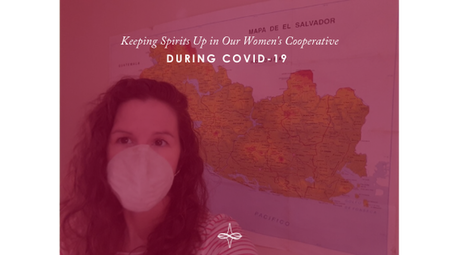

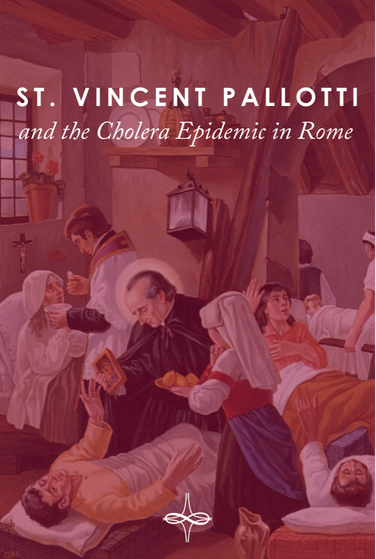
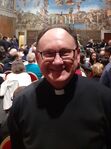
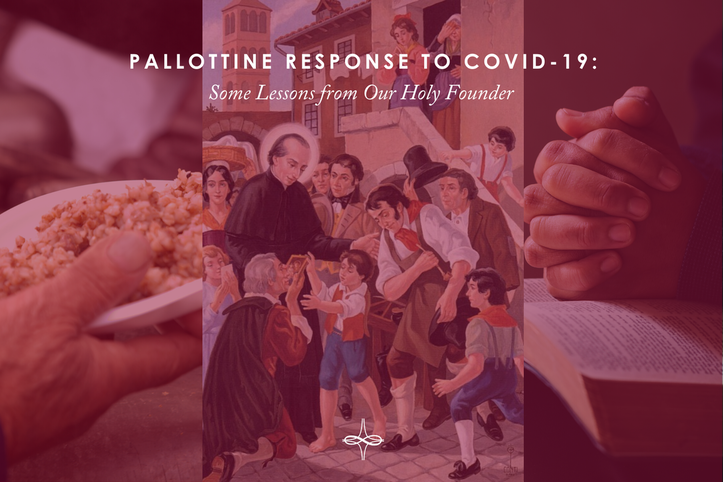
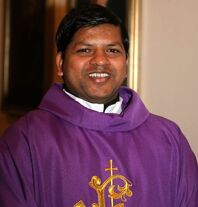
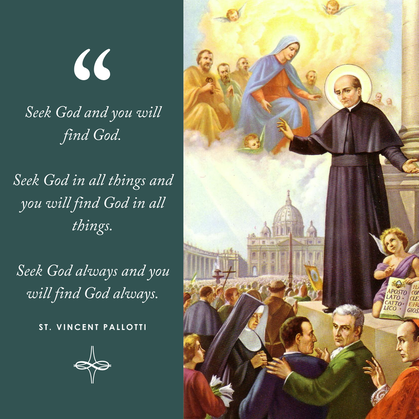
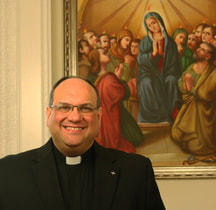
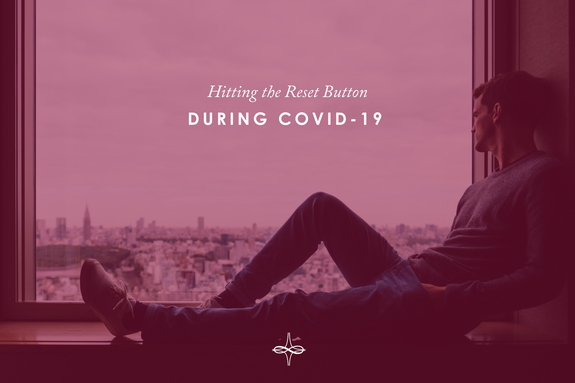
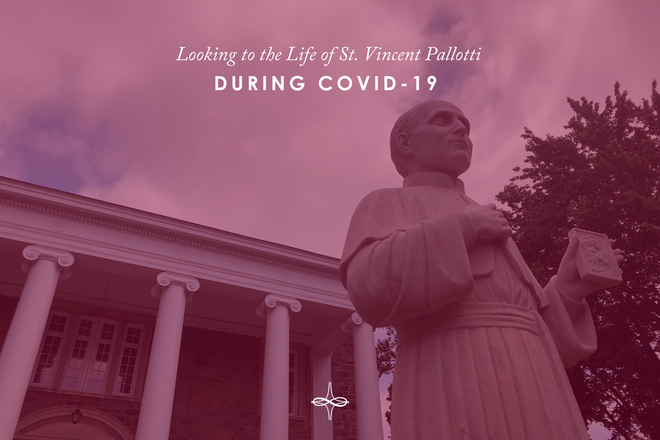
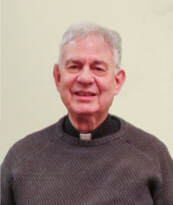


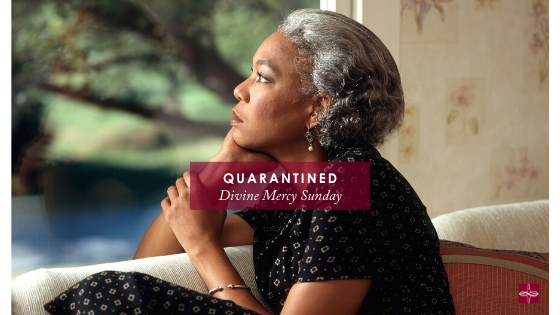

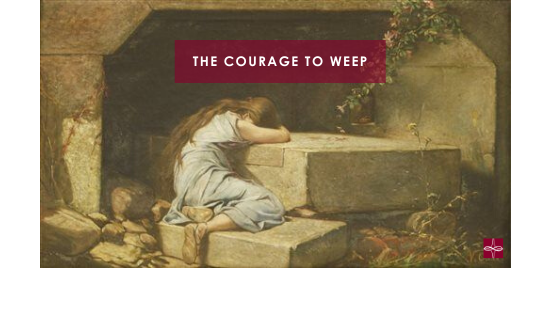

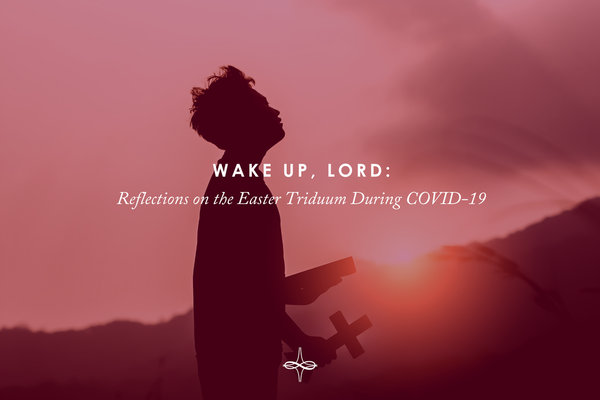

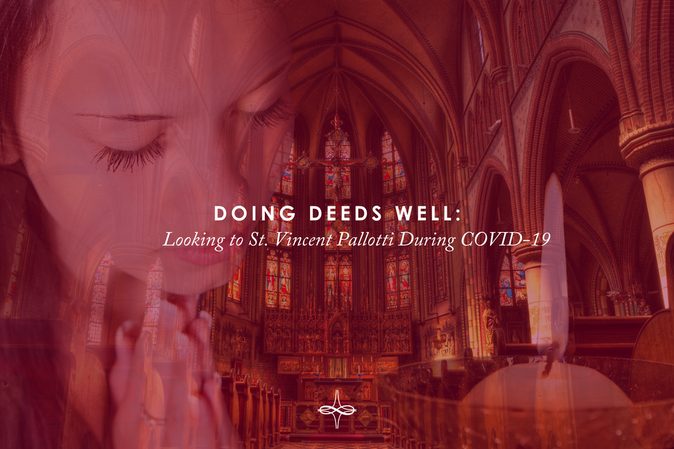
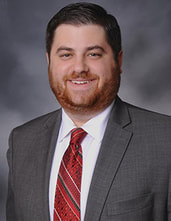
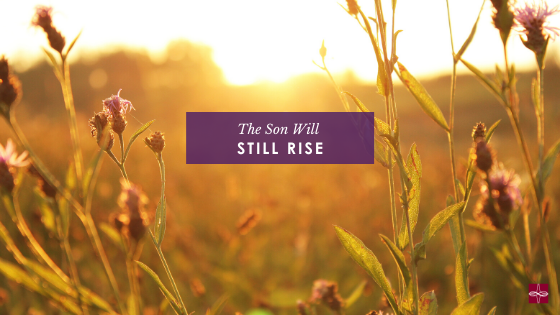


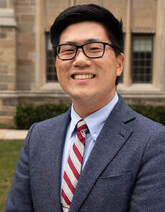
 RSS Feed
RSS Feed